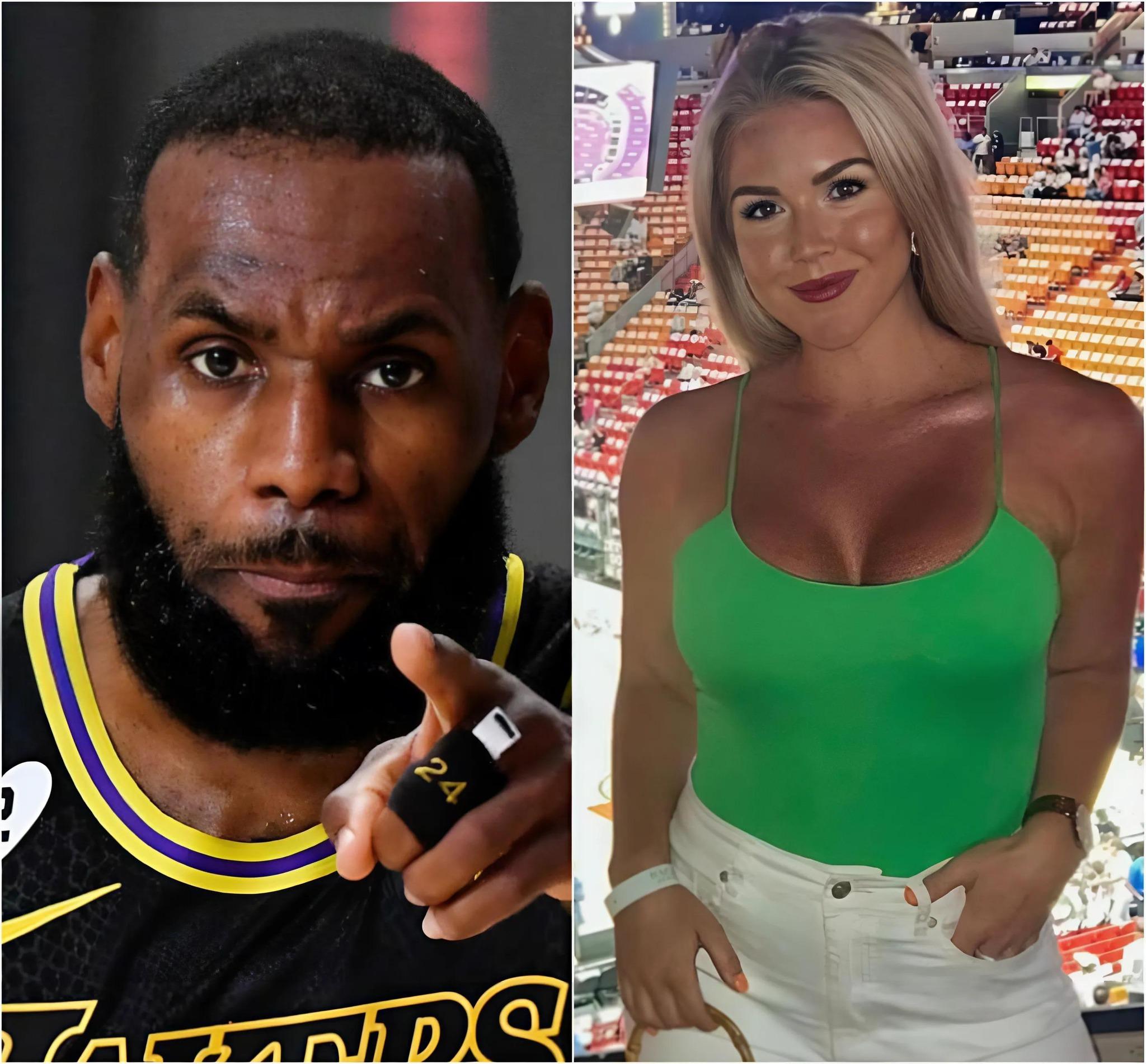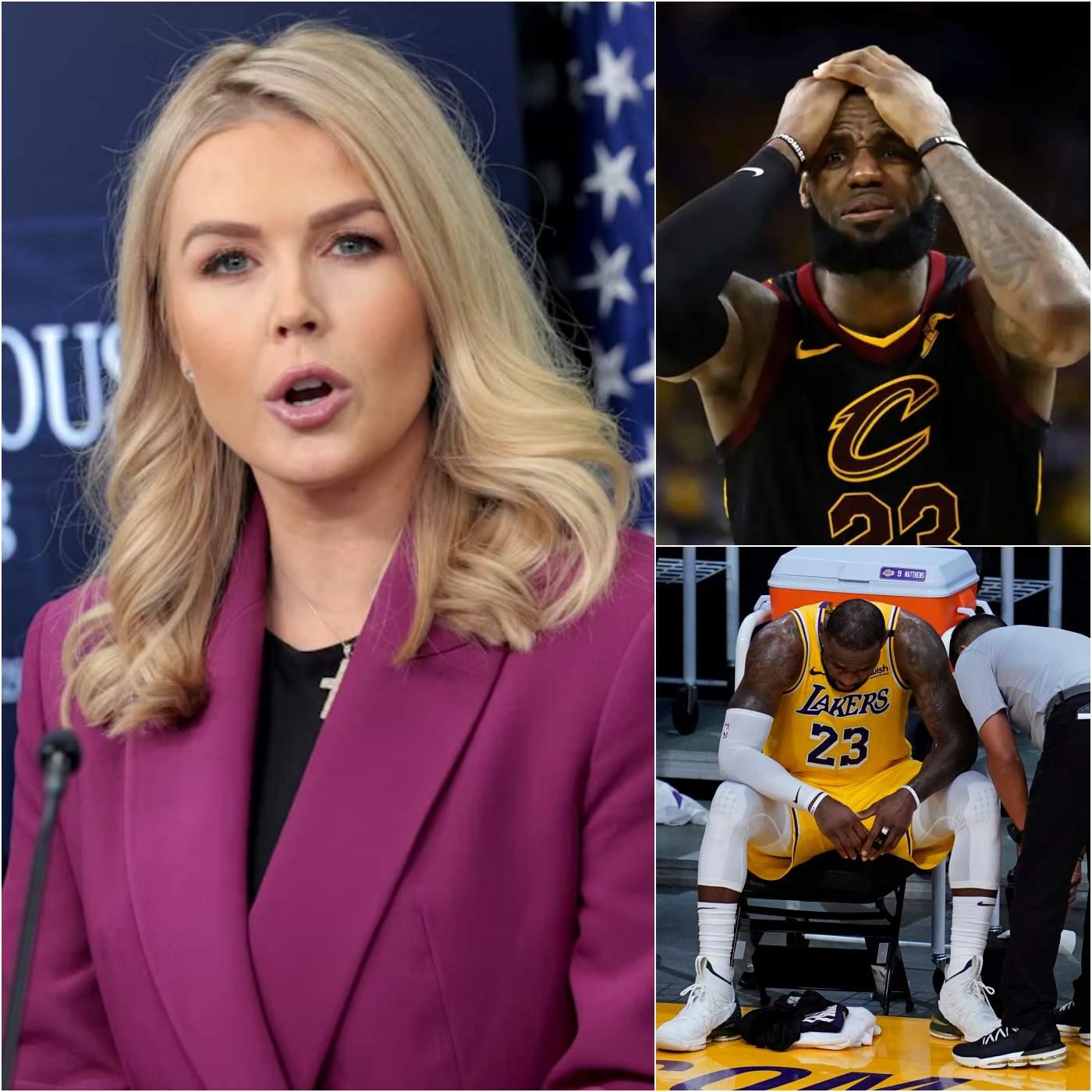The recent controversy involving NBA superstar LeBron James and political commentator Karoline Leavitt has taken the internet by storm. It began when LeBron allegedly referred to Leavitt as “KKK Barbie” during a heated social media exchange, sparking outrage across the political and entertainment spectrum. While many expected a furious response from Leavitt, what followed was something entirely different — a calm, composed, and cutting reply that turned the spotlight away from her and firmly onto LeBron himself.

In just 17 words, Leavitt issued a statement that not only dismissed the insult but also drew attention to LeBron’s controversial past. Her reply, though short, carried the weight of experience, self-assurance, and an understanding of how public opinion works. The content of her message wasn’t aggressive or accusatory, but it was enough to silence critics and freeze conversations on social media platforms for hours. Users across Twitter, Instagram, and even sports forums paused to reflect on what had just happened. It wasn’t just a clapback — it was a shift in narrative.

Leavitt’s response ignited debates beyond the initial insult. Commentators began revisiting LeBron’s history, including his previous remarks on race, law enforcement, and politics. While he has long been a polarizing figure — praised by some for his activism and criticized by others for perceived hypocrisy — this incident reopened old wounds and invited renewed scrutiny. Analysts pointed out moments when LeBron’s comments seemed inconsistent or dismissive, especially when dealing with critics outside of his political ideology.
In the days following the exchange, LeBron’s team remained largely silent. No official apology was issued, and his social media accounts saw significantly reduced activity. On the other hand, Leavitt gained traction across conservative media outlets, being interviewed by several major news organizations and praised for her composure. She emphasized the importance of responding with dignity in the face of personal attacks and used the opportunity to highlight what she views as a double standard in public discourse.
This situation reveals deeper tensions in American culture — particularly where politics, race, and celebrity intersect. It’s not just a story of two public figures trading jabs online; it’s a reflection of how divided and emotionally charged discussions have become. The reaction to the incident shows how quickly narratives can shift, and how power in the age of social media lies not only in who speaks the loudest, but in who speaks the wisest.
As the dust begins to settle, questions remain about what this means for LeBron James, whose public image has long been carefully managed. Will this affect his brand, his endorsements, or his standing with fans? Only time will tell. What is clear, however, is that Karoline Leavitt’s measured response has left a lasting impression — one that will be remembered long after the tweets are forgotten.